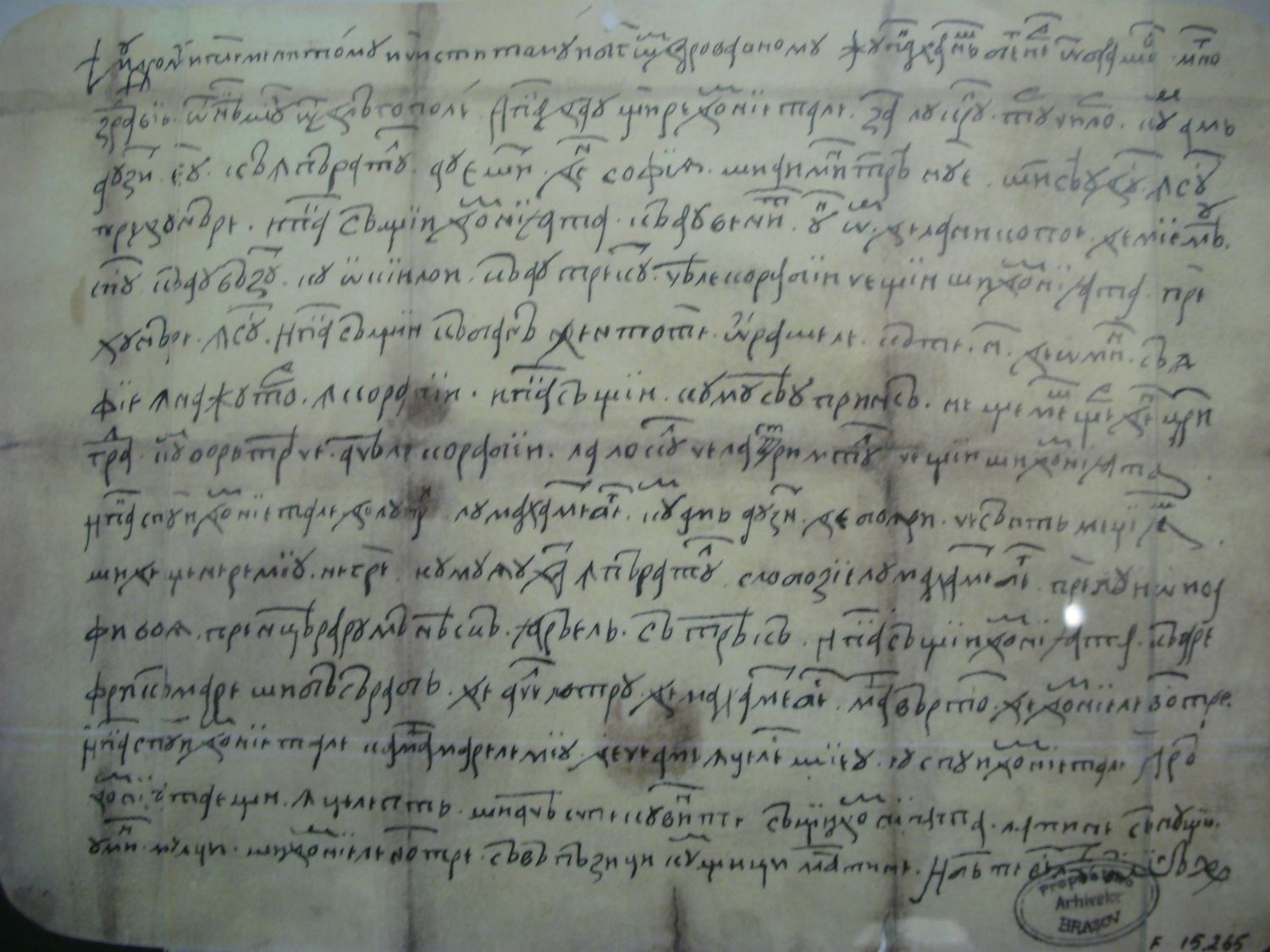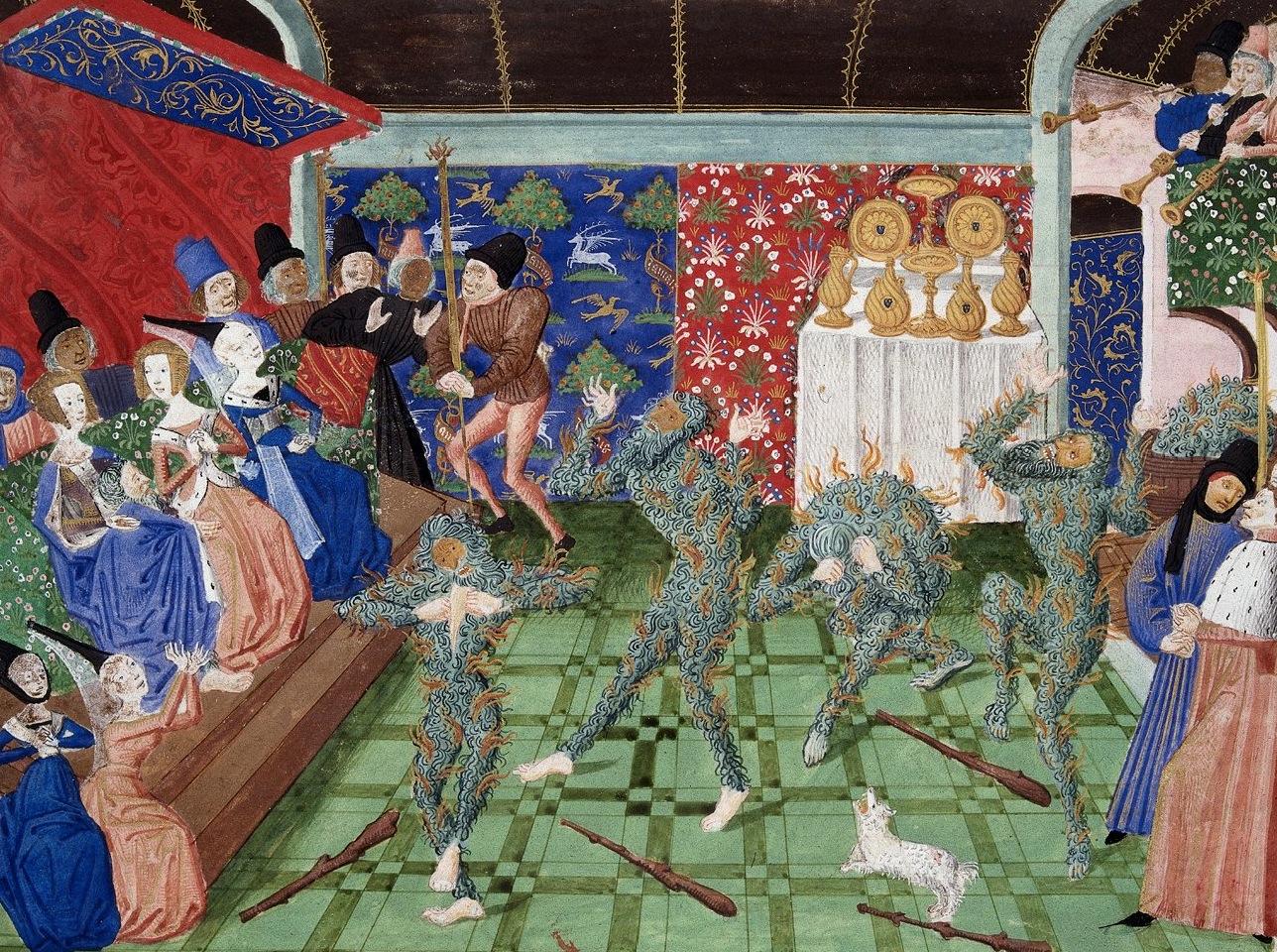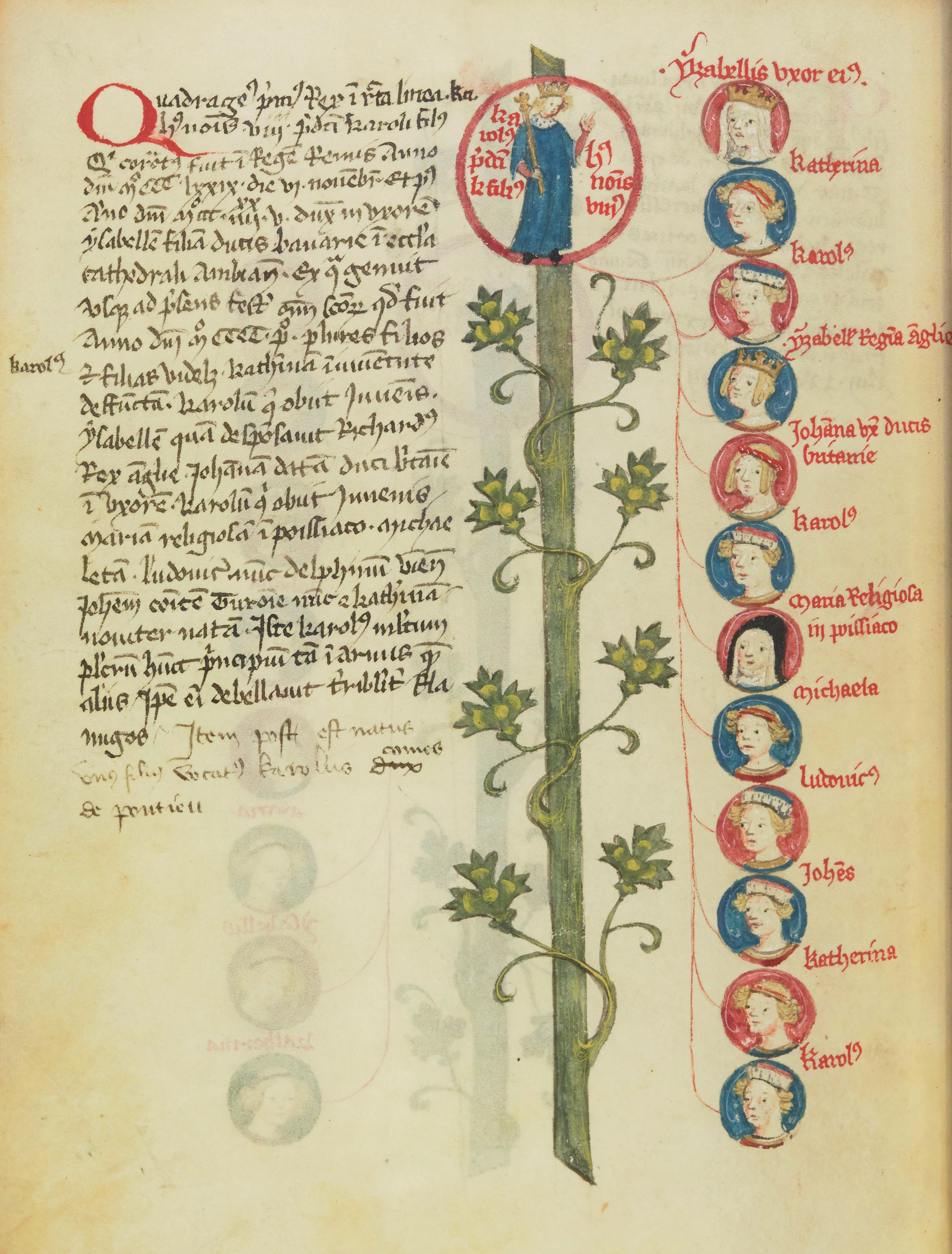|
January 28
Events Pre-1600 *AD 98, 98 – On the death of Nerva, Trajan is declared Roman emperor in Cologne, the seat of his government in lower Germany. * 814 – The death of Charlemagne, the first Holy Roman Emperor, brings about the accession of his son Louis the Pious as ruler of the Carolingian Empire, Frankish Empire. *1069 – Robert de Comines, appointed Earl of Northumbria by William the Conqueror, rides into Durham, England, where he is defeated and killed by rebels. This incident leads to the Harrying of the North. *1077 – Walk to Canossa: The excommunication of Henry IV, Holy Roman Emperor, is lifted after he humbles himself before Pope Gregory VII at Canossa in Italy. *1393 – Charles VI of France, King Charles VI of France was nearly killed when Bal des Ardents, several other dancers' costumes caught fire during a masquerade ball in Paris. *1521 – The Diet of Worms begins, lasting until May 25. *1547 – Edward VI of England, Edward VI, the ... [...More Info...] [...Related Items...] OR: [Wikipedia] [Google] [Baidu] |
AD 98
AD 98 (Roman numerals, XCVIII) was a common year starting on Monday of the Julian calendar. At the time, it was known as the Year of the Roman consul, Consulship of Nerva, Augustus and Traianus (or, less frequently, year 851 ''Ab urbe condita''). The denomination AD 98 for this year has been used since the early medieval period, when the Anno Domini calendar era became the prevalent method in Europe for naming years. Events By place Roman Empire * January 1 – Emperor Nerva suffers a stroke during a private audience. * January 27 – Nerva dies of a fever at his Roman villa, villa in the Gardens of Sallust and is succeeded by his Adoption, adopted son Trajan. Trajan is the first Roman Emperor born in Italica, near Seville. A brilliant soldier and administrator, he enters Ancient Rome, Rome without ceremony and wins over the public. Continuing the policies of Augustus, Vespasian and Nerva, he restores the Roman Senate, Senate to its full status in the government and begins ... [...More Info...] [...Related Items...] OR: [Wikipedia] [Google] [Baidu] |
Excommunication
Excommunication is an institutional act of religious censure used to deprive, suspend, or limit membership in a religious community or to restrict certain rights within it, in particular those of being in Koinonia, communion with other members of the congregation, and of receiving the sacraments. It is practiced by all of the ancient churches (such as the Catholic Church, Oriental Orthodoxy, Oriental Orthodox churches and the Eastern Orthodoxy, Eastern Orthodox churches) as well as by other Christian denominations; however, it is also used more generally to refer to similar types of institutional religious exclusionary practices and shunning among other religious groups. The Amish have also been known to excommunicate members that were either seen or known for breaking rules, or questioning the church, a practice known as shunning. Jehovah's Witnesses use the term disfellowship to refer to their form of excommunication. The word ''excommunication'' means putting a specific indiv ... [...More Info...] [...Related Items...] OR: [Wikipedia] [Google] [Baidu] |
1568
Year 1568 ( MDLXVIII) was a leap year starting on Thursday of the Julian calendar. Events January–March * January 6 – In the Eastern Hungarian Kingdom, the delegates of Unio Trium Nationum to the Diet of Torda convene in a session that ends on January 13, during which freedom of religion is debated. * January 28 – The Edict of Torda, Europe's first declaration of religious freedom, is adopted by the Kingdom of Hungary. * February 7 – Members of a Spanish expedition, commanded by Álvaro de Mendaña de Neira, become the first Europeans to see the Solomon Islands, landing at Santa Isabel Island. * February 16 – Fernando Álvarez de Toledo, 3rd Duke of Alba, governor of the Spanish Netherlands issues an edict condemning to death those who rebel against Spanish authority to combat religious unrest. * February 17 – Treaty of Adrianople (sometimes called the Peace of Adrianople): The Habsburgs agree to pay tribute to the Ottoma ... [...More Info...] [...Related Items...] OR: [Wikipedia] [Google] [Baidu] |
Henry VIII Of England
Henry VIII (28 June 149128 January 1547) was King of England from 22 April 1509 until his death in 1547. Henry is known for his Wives of Henry VIII, six marriages and his efforts to have his first marriage (to Catherine of Aragon) annulled. His disagreement with Pope Clement VII about such an annulment led Henry to initiate the English Reformation, separating the Church of England from papal authority. He appointed himself Supreme Head of the Church of England and dissolution of the monasteries, dissolved convents and monasteries, for which he was List of people excommunicated by the Catholic Church, excommunicated by the pope. Born in Greenwich, Henry brought radical changes to the Constitution of England, expanding royal power and ushering in the theory of the divine right of kings in opposition to papal supremacy. He frequently used charges of treason and heresy to quell dissent, and those accused were often executed without a formal trial using bills of attainder. He achi ... [...More Info...] [...Related Items...] OR: [Wikipedia] [Google] [Baidu] |
Edward VI Of England
Edward VI (12 October 1537 – 6 July 1553) was King of England and King of Ireland, Ireland from 28 January 1547 until his death in 1553. He was crowned on 20 February 1547 at the age of nine. The only surviving son of Henry VIII by his third wife, Jane Seymour, Edward was the first English monarch to be raised as a Protestant. During his reign, the realm was governed by a regency council because Edward never reached maturity. The council was first led by his uncle Edward Seymour, Duke of Somerset (1547–1549), and then by John Dudley, Duke of Northumberland (1550–1553). Edward's reign was marked by many economic problems and social unrest that in 1549 erupted into riot and rebellion. An expensive Rough Wooing, war with Kingdom of Scotland, Scotland, at first successful, ended with military withdrawal from Scotland and Boulogne-sur-Mer in exchange for peace. The transformation of the Church of England into a recognisably Protestant body also occurred under Edward, who too ... [...More Info...] [...Related Items...] OR: [Wikipedia] [Google] [Baidu] |
1547
Year 1547 ( MDXLVII) was a common year starting on Saturday of the Julian calendar. Events January–March * January 8 – The first Lithuanian-language book, a ''Catechism'' (, Simple Words of Catechism), is published in Königsberg by Martynas Mažvydas. * January 13 – Henry Howard, Earl of Surrey is sentenced to death for treason in England. * January 16 – Grand Prince Ivan IV is crowned as Tsar of all Russia at the Dormition Cathedral in Moscow, thereby proclaiming the Tsardom of Russia. * January 28 – King Henry VIII of England dies in London, and is succeeded by his 9-year-old son Edward VI, as King of England. * February 20 – Edward VI of England is crowned at Westminster Abbey. * March 31 – King Francis I of France dies at the Château de Rambouillet and is succeeded by his eldest surviving son Henry II (on his 28th birthday) as King of France. April–June * April 4 – Catherine Parr, widow of King Henry ... [...More Info...] [...Related Items...] OR: [Wikipedia] [Google] [Baidu] |
May 25
Events Pre-1600 * 567 BC – Servius Tullius, the king of Rome, celebrates a triumph for his victory over the Etruscans. * 240 BC – First recorded perihelion passage of Halley's Comet. * 1085 – Alfonso VI of Castile takes Toledo, Spain, back from the Moors. * 1420 – Henry the Navigator is appointed governor of the Order of Christ. * 1521 – The Diet of Worms ends when Charles V, Holy Roman Emperor, issues the Edict of Worms, declaring Martin Luther an outlaw. 1601–1900 * 1644 – Ming general Wu Sangui forms an alliance with the invading Manchus and opens the gates of the Great Wall of China at Shanhaiguan pass, letting the Manchus through towards the capital Beijing. * 1659 – Richard Cromwell resigns as Lord Protector of England following the restoration of the Long Parliament, beginning a second brief period of the republican government called the Commonwealth of England. * 1660 – Charles II lands at Dover at th ... [...More Info...] [...Related Items...] OR: [Wikipedia] [Google] [Baidu] |
Diet Of Worms
The Diet of Worms of 1521 ( ) was an Imperial Diet (Holy Roman Empire), imperial diet (a formal deliberative assembly) of the Holy Roman Empire called by Emperor Charles V, Holy Roman Emperor, Charles V and conducted in the Imperial Free City of Worms, Germany, Worms. Martin Luther was summoned to the diet in order to renounce or reaffirm his views in response to a Exsurge Domine, Papal bull of Pope Leo X. In answer to questioning, he defended these views and refused to recant them. At the end of the diet, the Emperor issued the Edict of Worms (''Wormser Edikt''), a decree which condemned Luther as "a notorious Heresy in the Catholic Church, heretic" and banned citizens of the Empire from propagating his ideas. Although the Protestant Reformation is usually considered to have begun in 1517, the edict signals the first overt schism. The diet was conducted from 28 January to 25 May 1521 at the Bischofshof palace in Worms, with the Emperor presiding. Other imperial diets took place ... [...More Info...] [...Related Items...] OR: [Wikipedia] [Google] [Baidu] |
1521
1521 ( MDXXI) was a common year starting on Tuesday of the Julian calendar, the 1521st year of the Common Era (CE) and ''Anno Domini'' (AD) designations, the 521st year of the 2nd millennium, the 21st year of the 16th century, and the 2nd year of the 1520s decade. Events January–March * January 3 – Pope Leo X excommunicates Martin Luther, in the papal bull '' Decet Romanum Pontificem''. * January 22 – Charles V, Holy Roman Emperor, opens the Diet of Worms in Worms, Germany. * January 27 – Suleiman the Magnificent suppresses a revolt by the ruler of Damascus, Janbirdi al-Ghazali. * February 2 – The Nydala Abbey Bloodbath takes place at Nydala Abbey, Sweden; the abbot and many monks are murdered by Danes. * March 6 ** Ferdinand Magellan makes the first European contact with Guam, most likely landing in Tumon. ** Martin Luther is summoned to appear before the Diet of Worms. * March 16 – Ferdinand Magellan reaches the Philippines, in ea ... [...More Info...] [...Related Items...] OR: [Wikipedia] [Google] [Baidu] |
Masquerade Ball
A masquerade ball (or bal masqué) is a special kind of formal ball which many participants attend in costume wearing masks. (Compare the word "masque"—a formal written and sung court pageant.) Less formal " costume parties" may be a descendant of this tradition. A masquerade ball usually encompasses music and dancing. These nighttime events are used for entertainment and celebrations. History Masquerade balls were a feature of the Carnival season in the 15th century, and involved increasingly elaborate allegorical Royal Entries, pageants, and triumphal processions celebrating marriages and other dynastic events of late medieval court life. The " Bal des Ardents" (''"Burning Men's Ball"'') was held by Charles VI of France, and intended as a ''Bal des sauvages'' (''"Wild Men's Ball"''), a form of costumed ball ('' morisco''). It took place in celebration of the marriage of a lady-in-waiting of Charles VI of France's queen in Paris on January 28, 1393. The King and fi ... [...More Info...] [...Related Items...] OR: [Wikipedia] [Google] [Baidu] |
Bal Des Ardents
The ''Bal des Ardents'' (Ball of the Burning Men), or the ''Bal des Sauvages'' (Ball of the Wild Men), was a masquerade ballSources vary whether the event was a masquerade or a masque. held on 28 January 1393 in Paris, France, at which King Charles VI had a dance performance with five members of the French nobility. Four of the dancers were killed in a fire caused by a torch brought in by Louis I, Duke of Orléans, the king's brother. The ball, held at the royal palace of Saint-Pol, was one of a series of events organised to entertain Charles, who had suffered an attack of insanity in the previous summer of that year. The circumstances of the fire undermined confidence in the king's capacity to rule; Parisians considered it proof of courtly decadence and threatened to rebel against the more powerful members of the nobility. The public's outrage forced Charles and his brother Orléans, whom a contemporary chronicler accused of attempted regicide and sorcery, to offer penance ... [...More Info...] [...Related Items...] OR: [Wikipedia] [Google] [Baidu] |
Charles VI Of France
Charles VI (3 December 136821 October 1422), nicknamed the Beloved () and in the 19th century, the Mad ( or ''le Fou''), was King of France from 1380 until his death in 1422. He is known for his mental illness and psychosis, psychotic episodes that plagued him throughout his life. Charles ascended the throne at age 11, his father Charles V of France, Charles V leaving behind a favorable military situation, marked by the reconquest of most of the English possessions in France. Charles VI was placed under the regency of his uncles: Philip II, Duke of Burgundy; Louis I, Duke of Anjou; John, Duke of Berry; and Louis II, Duke of Bourbon. He decided in 1388, aged 20, to emancipate himself. In 1392, while leading a military expedition against the Duchy of Brittany, the king had his first attack of delirium, during which he attacked his own men in the forest of Le Mans. A few months later, following the ''Bal des Ardents'' (January 1393) where he narrowly escaped death from burning, Char ... [...More Info...] [...Related Items...] OR: [Wikipedia] [Google] [Baidu] |








